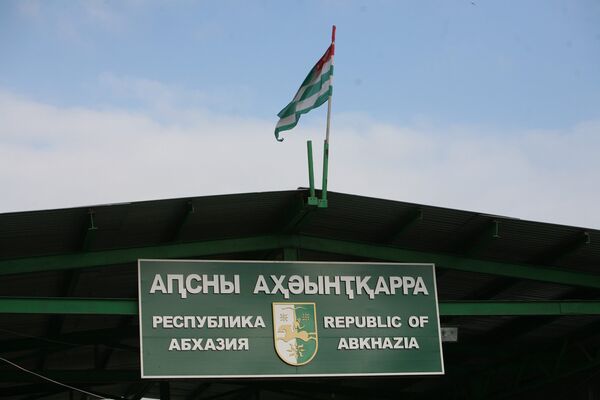MOSCOW, May 30 (RIA Novosti) – The Parliament of Abkhazia has passed a vote of no confidence in Prime Minister Leonid Lakerbaia and urged President Alexander Ankvab to resign voluntarily. The secretary of the republic’s Security Council told RIA Novosti that the president will decide whether to dismiss the cabinet.
THREE BRANCHES OF POWER
Under the 1994 Constitution, amended in 1999, the government of Abkhazia is divided into legislative, executive and judicial branches.
The parliament – the People’s Assembly of 35 deputies – holds the entire legislative power. The parliament is elected through a national equal popular and secret vote.
The head of state, the president of Abkhazia, holds executive power and manages the government. The president is elected through a national equal popular and secret vote for a term of five years, like the parliament, but can be only reelected once. The president determines the general course of the national and foreign policies and is a commander-in-chief of the country’s armed forces.
The vice president is elected along with the president; candidates are suggested by each presidential candidate. The vice president is to fulfill the president’s functions when the head of state is absent or unable to do so. The vice president also carries out some directives from the president.
The president appoints the cabinet of ministers that reports to him/her. The government is comprised of the prime minister, deputy prime ministers, ministers and other officials. Both the entire cabinet and its individual members have the right to resign, while the president accepts or rejects the resignation.
Justice is carried out in Abkhazia only by the courts, of which the Supreme Court is the highest judicial body. All judges, including chairs and members of the Supreme Court and the Commercial Court as well as the prosecutor general are appointed by the parliament on the president’s recommendation.
CHECKS AND BALANCES
The Parliament of Abkhazia can pass a vote of no confidence in a member of the cabinet of ministers. The president will then decide on the member’s resignation.
The president can resign at any time, with the qualified majority of the parliament voting on the resignation. The parliament can also make its own decision on releasing the president from his or her duties if the president breaches the presidential oath, the constitution or the laws of Abkhazia. In this case, the Supreme Court will issue an impeachment ruling while the final decision is made by secret ballot of the two-thirds of the parliament.
If the president stops fulfilling his or her duties as a result of impeachment, resignation, death or inability to act as the head of state, the new presidential election must be held within three months. Until then, the powers of the head of state are handed over to the vice president, then the prime minister and the parliament speaker.
The Supreme Court can cancel the president’s decisions if they violate the Constitution or the laws of Abkhazia.
POLITICAL HISTORY
Vladislav Ardzinba was the leader of Abkhazia between December 1990 and January 2005.
Sergei Bagapsh won the first democratic election in the country, which was held on January 12, 2005. On December 12, 2010, he was reelected but died on May 29, 2011. Vice President Alexander Ankvab then took over as president. When both the vice president and the prime minister ran for president on July 26, 2011, Speaker of the Parliament Nugzar Ashuba took over the duties of the head of state.
At the presidential election on August 26, 2011, Ankvab won in the first round and took office on September 26, 2011.
The Abkhazian parliament adopted a new constitution on November 26, 1994, which was approved at the October 3, 1999 referendum.
The Sovereignty Act of Abkhazia was adopted on October 12, 1999, also by a referendum.
In 2008, Abkhazia received international recognition. Its sovereignty is recognized by Russia, Nicaragua, Venezuela, Nauru and South Ossetia.




